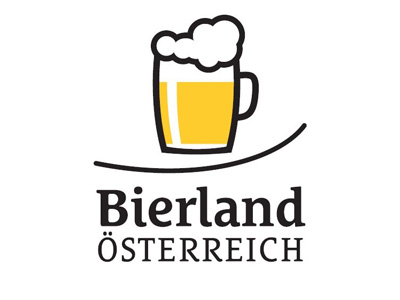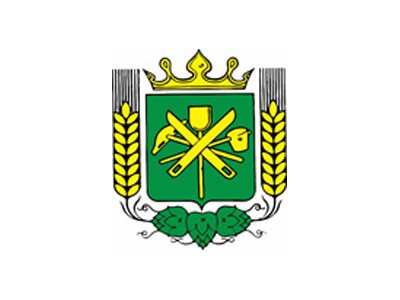
Report on the economic effects of high excise duty on beer
- advocate
- 19/12/2014
- 1915
- Need for a supportive taxation
That study focuses on the economic impact of high excise duties and/or the changes in excise duty implemented by national governments.
Key Messages
- Analysis of increases in excise duty in the EU (2008-2012) shows that high excise duty rates (such as the ones in the Nordic countries) impact negatively on the economy. In addition to negative effects on employment, excise duty increases also ultimately failed to bring about a proportional increase in total beer-generated government revenues. In eight of the seventeen countries in which an excise duty increase was implemented (16 EU countries and Norway) beer-generated government revenues even decreased.
- Both member states operating with lower levels of taxation and consumers benefit from the free movement of goods within the EU allowing consumers to choose where they buy goods from. However for those member states that choose to apply with high rates of taxation - such as the Nordic Members States – there are clear consequences in relation to loss of sales, revenues and jobs.
- As a result of the high excise duty rates on beer, 52.7% of the consumers from the Nordic countries purchase beer abroad, amounting to 328.4 million litres (worth 1.0 billion euros) annually. This results in:
- a direct loss of VAT and excise duty revenues of approximately 545 million euros;
- around 2,590 fewer beer-generated jobs in the retail sector alone and consequently a loss of 42 million euros in income tax and social contribution revenues;
- an approximately 2.0 billion euros spend on other products when travelling abroad to buy beer, resulting in a total loss of 406 million euros in VAT revenue;
- taking into account the economic effects mentioned above, crossborder shopping for beer can account for a total loss of government revenues amounting to 1.0 billion euros;
- buying beer is often a traffic builder prompting the purchase of other products abroad. For every euro that is not spent on beer in Nordic retail outlets (due to cross-border shopping for beer), consumers also spend 2.01 euros on other products abroad;
- an additional 4.3 billion kilometres travelled by car, resulting in approximately 791,800 tonnes of additional CO2 emissions. There will also be significant CO2 emission resulting from the use of other means of transport.
The excise duty rates applicable to beer in Denmark, Finland, Norway and Sweden are among the highest in Europe. Our study shows that the high excise duty rates in these countries, and the large tax differentials with neighbouring countries in particular, have negative economic consequences.
Increasing excise duty has a negative impact on the economy
High excise duty rates lead to higher consumer prices, causing sales volumes to come under pressure. This, in turn, has negative consequences for beer generated jobs and government revenues. This mechanism becomes clearly apparent when one looks at excise duty increases in the EU (including the Nordic countries) as well as Norway in the period 2008-2012. In most countries in which the excise duty on beer was increased, beer-generated employment decreased. In 8 of the 17 countries where an excise increase took place in the period between 2008 and 2012, there was even a decrease in total beer-generated government revenues.
High volumes of cross-border shopping for beer
High excise duty rates lead consumers to buy beer abroad because of the lower beer prices there. Due to high excise duty rates and restrictive policies with regard to retail sales, cross-border shopping is a significant phenomenon with a high impact on economy and society in the Nordic countries. 52.7% of all Nordic beer consumers bought beer across the border between June 2013 and June 2014 [This figure represents consumers that purchase beer abroad themselves and/or let someone else purchase beer abroad on their behalf. It should be noted that the sample for Denmark contained residents from all Danish regions. In the other Nordic countries examined, regions more distant from national borders were excluded. (See Annex I)] Inhabitants of the Nordic countries purchase 328.4 million litres of beer outside national borders annually. It should be noted that this figure only indicates the loss caused by legal cross-border shopping by consumers. If the loss caused by illegal trade were to be included as well, the figure would be higher still.
Cross-border shopping negatively impacts on economies and environment
Cross-border shopping causes substantial harm to national economies and the environment. When people decide to purchase beer abroad, this of course results in a decline in domestic beer sales. The loss of VAT and excise duty revenues arising directly from cross-border shopping for beer amounts to approximately 545 million euros. In addition to this, cross-border shopping for beer leads to around 2,590 fewer beer-generated jobs in the retail sector and, consequently, a loss of 42 million euros in income tax and social contribution revenues for the governments of the four Nordic countries. Furthermore, we estimate that Nordic consumers spend approximately 2.0 billion euros in total on other products when they travel abroad to buy beer, resulting in a total loss of 512 million euros in VAT revenue. In addition to the negative economic effects of cross-border shopping for beer, the phenomenon has a seriously negative impact on the environment. We estimate the total additional CO2 emissions resulting from the extra kilometres travelled for cross-border shopping (4.3 billion kilometres by car alone) to be approximately 791,800 tonnes.
It should be noted that the figures presented above are minimum figures for beer sales across the Nordic borders, since the study does not cover the Nordic countries in their entirety: parts of Norway, Sweden and Finland were not included in the survey. Furthermore, the figures only pertain to legitimate cross-border shopping by consumers; the illegal trade in beer is not included.
Illegal trade in the Nordic countries
In line with the principles of the internal market, consumers are allowed to buy beer abroad in limited amounts without having to pay import tax. This also applies to high value products such as tobacco, spirits and wine. However, high rates of taxation for beer and high value products may also encourage consumers to explore more affordable options including illegal trade. Even though the high value products are more obvious targets for illegal trade than high volume products such as beer.
Price differences between countries also result in illegal trading activities for beer. This mainly applies to the across-the-border purchase of large amounts of beer (exceeding the admissible quantities) for domestic use or with the purpose of selling it on to consumers in the home country. Publications by both governmental authorities and the academic community point out that illegal trade in alcoholic beverages has many negative consequences including detrimental economic effects and health issues related to its availability to under-aged persons. [Under-aged refers to those people under the legal purchasing age for consuming alcohol in the concerned countries.










